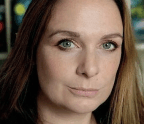Dyslexia unbounded


When you picture students doing exams (pre-pandemic), you might imagine an enormous school hall full of pupils sitting at separate desks spaced evenly apart.
My experience was different. I remember doing my GCSEs and A-Levels in a small side-room along with a few other students in my year. We had extra time for exams because of various learning difficulties. As my dyslexia (and dyspraxia) impacts the way I get words onto the page, I was offered a scribe, but I couldn’t bear the thought of dictating my answers for someone to write down, however kind or patient they were. So I used a laptop instead. Without the extra time and use of a typewriting device, I know I would probably not have managed to finish a single paper.
As a writer and journalist, I’ve.
You’re reading a preview, subscribe to read more.
Start your free 30 days

